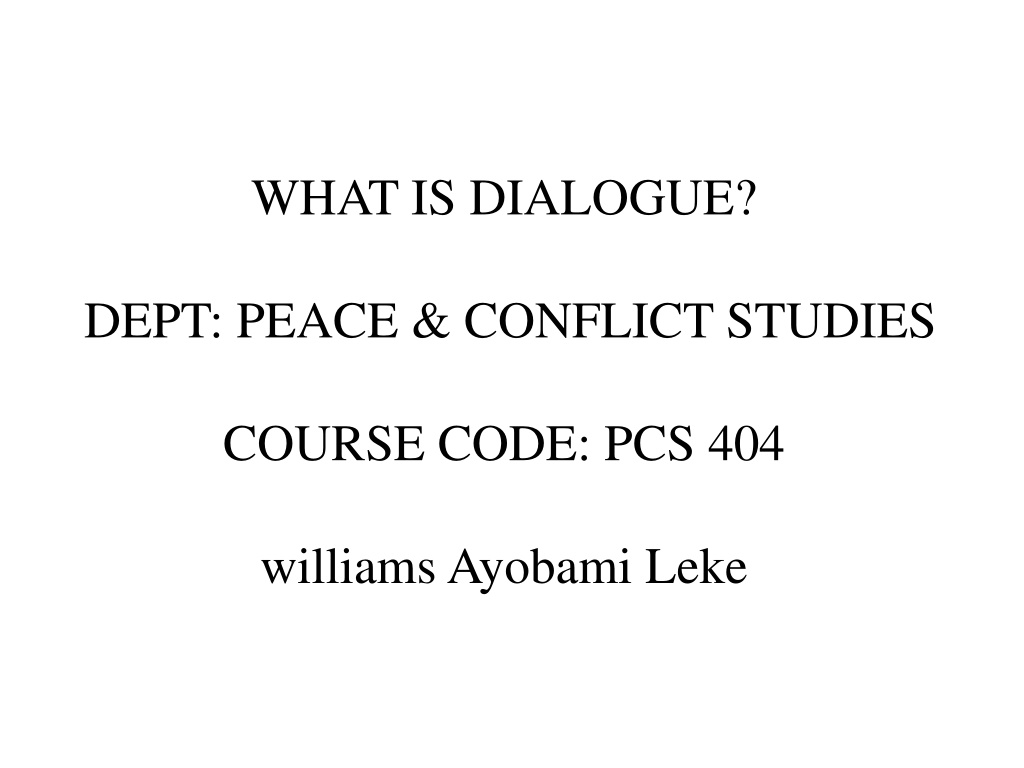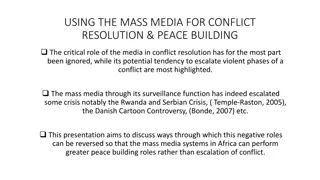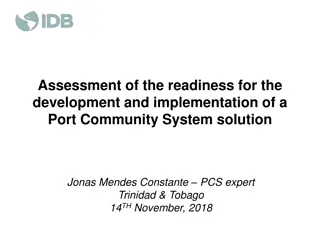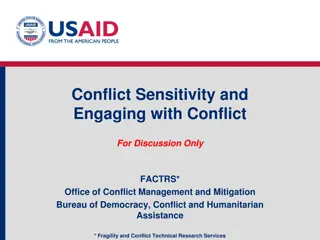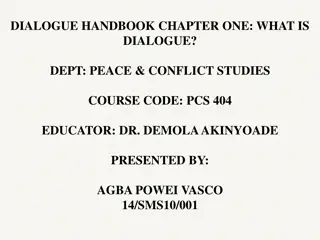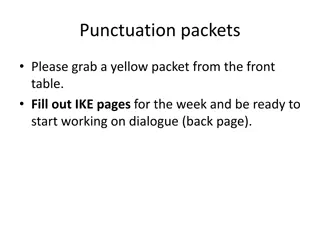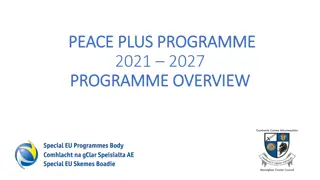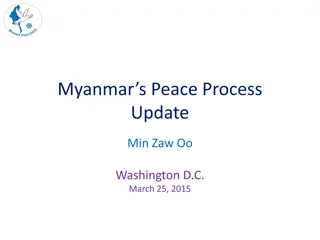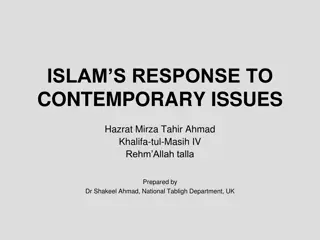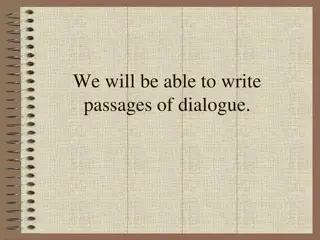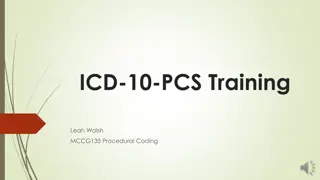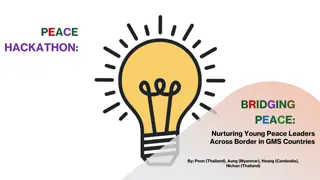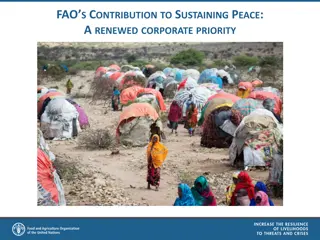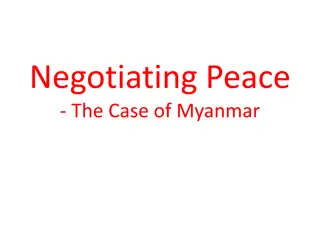Understanding Dialogue in Peace and Conflict Studies Course (PCS 404)
In the field of Peace and Conflict Studies, dialogue plays a crucial role in resolving disputes and achieving mutual understanding. This article explores the definition of dialogue, its principles, views, and two types of discussions - destructive and constructive. By understanding the essence of dialogue, individuals can foster communication based on trust, openness, honesty, and equality, ultimately leading to conflict resolution and positive outcomes.
Download Presentation

Please find below an Image/Link to download the presentation.
The content on the website is provided AS IS for your information and personal use only. It may not be sold, licensed, or shared on other websites without obtaining consent from the author. Download presentation by click this link. If you encounter any issues during the download, it is possible that the publisher has removed the file from their server.
E N D
Presentation Transcript
WHAT IS DIALOGUE? DEPT: PEACE & CONFLICT STUDIES COURSE CODE: PCS 404 williams Ayobami Leke
Table of content Introduction and Definition of dialogue Principles of dialogue dialogue views the two types of discussion dialogue as an active choice conclusion
Definition of dialogue In the world today dialogue is very essential when settling disputes between people which means that without dialogue settling conflicts will be very difficult.Etymologically, the term dialogue was derived from Greek word called dialogos, which means through the word (dia = through and logos = word). In everyday language, the term is widely used in the same sense as conversation , but dialogue is more than just talking to one another. Dialogue is a special form of communication, in which participants seek to actively create greater mutual understanding and deeper insight. The followings are some of the elements in the definition of dialogue according to the material.
Principles of dialogue There are four basic principles that make up dialogue and they are ; trust, openness, honesty and equality. i. Trust: When there is trust between people or persons in communication, it is easier to express opposing views. One party listens, while the other party feels heard. ii. Openness: Openness is about being honest about what you represent and being open to what the other suggests. It help you to understand the others view. iii. Honesty: Honesty is about being authentic in being who you are, both in your words and your way of being. It build trust while dishonest bring mistrust. iv. Equality: Dialogue is based on the value that everybody has something to say, regardless of status, gender, ethnic background, etc. In a dialogue everybody joins in on an equal footing. Everybody has the same right of viewpoint.
Dialogue views Dialogue also has its own basic views, which are basically questions such as; in what do I believe? What is my view on human nature? For what do I want to use dialogue and why? This are the basic questions that you ask yourself if you want to understand dialogue values.
The two types of discussions Also there are two types of discussion which are i. Destructive discussion: in this type of dicussion, people do not listen attentively. You focus on preparing your next argument and wait mainly to have your say. It does not lead to very much except deadlocked positions. It does not break any new ground. This type of discussion is outright damaging and fuels conflict. ii. Constructive discussion: the basic dialogical principles of trust, openness, honesty and equality are upheld. People listen with a frame of mind that is open, inquiring and patient enough to digest both their own and the other s arguments. Respectful negotiations may lead to a compromise or a win-win situation.
Dialogue as an active choice Dialogue is a valuable tool in which we need in creating or forming an agreement. Also it is very difficult in avoiding arguments, debates and persuasions completely, but one thing that we should know is that dialogue is an opportunity that we can deliberately choose, in order handle differences between one another.
Conclusion Finally we should know that no matter the problem we encounter in any conflict resolution dialogue is a major tool that we can use to achieve our aim and that aim is peace.
